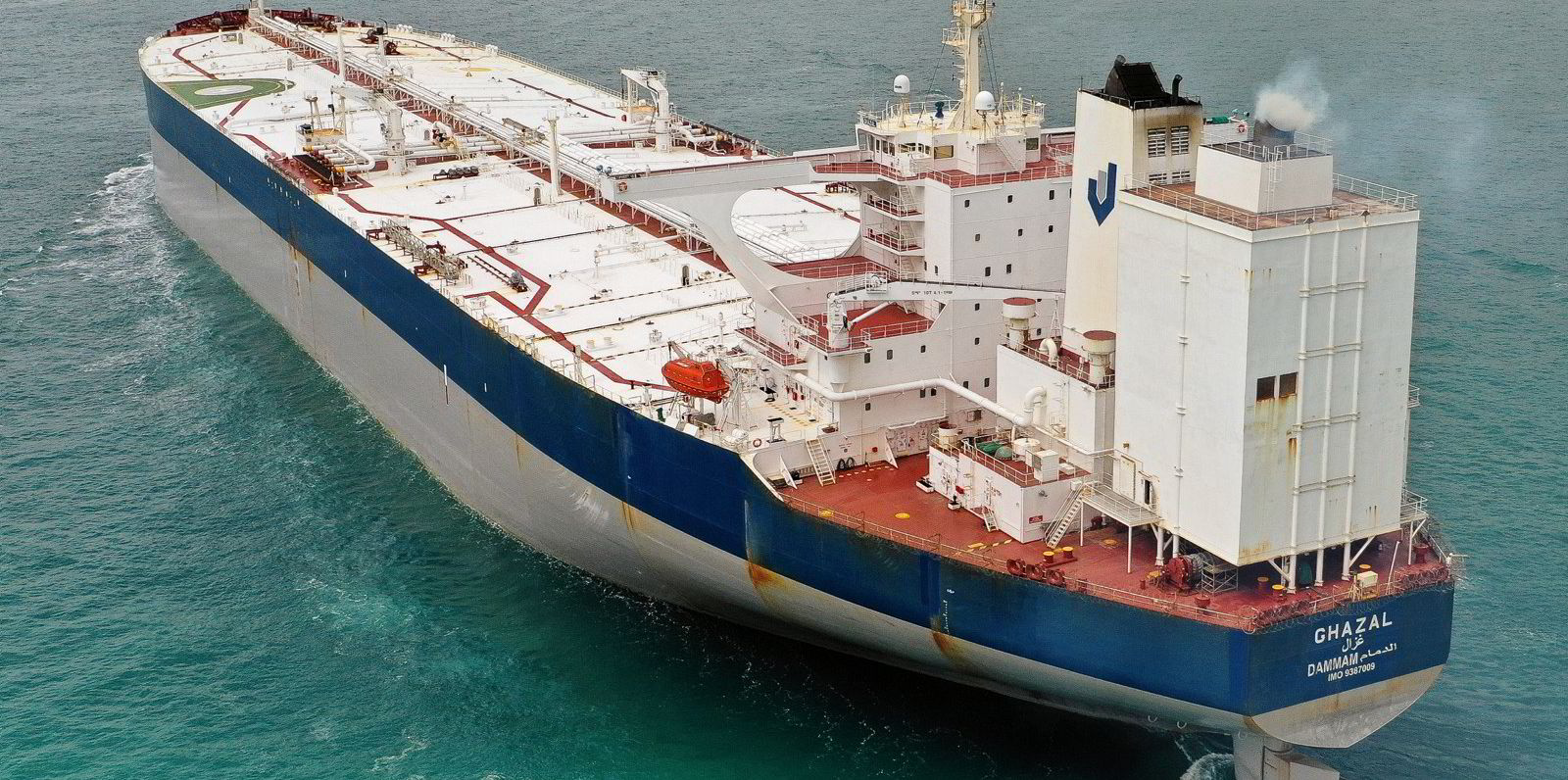VLCC earnings are likely to remain below the levels of smaller crude carriers for the rest of this year following Saudi Arabia’s decision to cut oil production, says BRS Group.
The largest crude carriers are likely to be hardest hit by the 1m barrel-per–day (bpd) cut in July as they lift 85% of Saudi exports.
“This presents yet another headwind in the seemingly never-ending list of factors delaying the [VLCC] segment from regaining its structural earnings premium over smaller aframaxes and suezmaxes,” BRS said in a weekly report.
“Accordingly, we project that VLCC earnings ... will remain below these smaller crude carriers on a quarterly basis over the remainder of this year.”
Time-charter equivalent rates for VLCCs currently stand at $14,337 per day, down from a peak of more than $75,000 per day in March, according to the Baltic Exchange.
While aframax and suezmax crude carriers have had similar sharp declines, both classes are still earning around $42,000 per day.
Tanker stocks tumbled between 3% and 8% over the trading day in New York on Monday after the Saudi move and Opec+ nations decided to extend a previous 1.66m bpd supply cut for a further 12 months.
The cuts, which were announced on Sunday, are seen as an attempt by Saudi Arabia to boost oil prices. Brent crude is currently below $76 per barrel — down from a high of more than $120 in June because of supply fears in the early months of the invasion of Ukraine.
The International Monetary Fund said the kingdom needs to sell its barrels at more than $80 to meet its spending commitments.
The impact on VLCCs will go beyond Saudi Arabia’s national shipping company — Bahri — with 93 different operators lifting the country’s crude so far in 2023, BRS said, adding that Bahri accounted for 13% of crude fixtures this year.
The supply gap could be filled by Russian grades, other Middle East producers and from the US Gulf, Brazil and Mexico, the French broker said.
It added that an increase in trade from the US Gulf to China could lessen the impact of the Saudi cut for VLCCs, with voyages taking 33 days more than from the Middle East.
“All of this suggests that, although on paper Saudi Arabia’s cut appears harmful to tankers, in reality, it will be far more nuanced with certain markets likely to see some potential upside,” it said.





